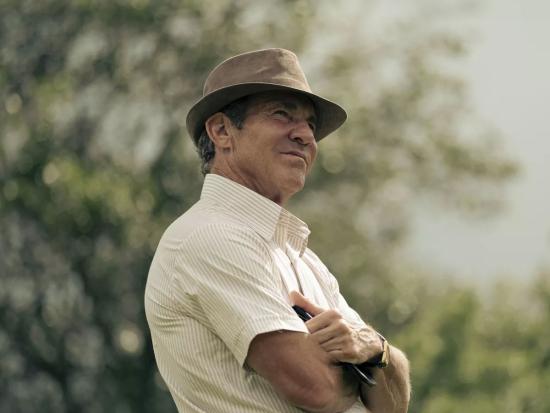
After years in the film industry, Dennis Quaid has seen firsthand how Hollywood can be out of touch with what audiences want to see on screen. The 70-year-old actor told The Christian Post, “Sometimes I feel like Hollywood’s kind of lost its way a little bit.” He’s hoping his new movie, “The Long Game,” a true story that seeks to inspire, uplift, and remind audiences of the enduring strength of the human spirit, will counteract some of the harmful content emerging from Hollywood.
He said, “I want to see movies that instruct the heart and relate to the heart, where you feel this common bond with the film and with other people. That’s what ‘The Long Game’ does.” Inspired by Humberto G. Garcia’s book Mustang Miracle, “The Long Game” explores the remarkable journey of five Mexican American high school students — Joe Treviño, Gene Vasquez, Felipe Romero, Mario Lomas and Lupe Felan — who defied the odds in the 1950s by building their golf course after being banned from playing at an all-white Texas country club. The students, part of the San Felipe Mustangs, went on to become state champions and, in 2012, were inducted into the Latin American International Sports Hall of Fame.
“Lee Treviño was one of the first Latino golfers on the PGA Tour in the late ’50s, early ’60s, and this is his story,” Quaid said. “He grew up in that era and had to fight through a lot of discrimination. But he transcended it; his talent was undeniable. It’s through sport, a lot of times, that different cultures really attain the American dream.” “Suicide Squad” star Jay Hernandez plays Peña, and “9-1-1: Lone Star” actor Julian Works portrays Treviño. Quaid portrays Frank Mitchell, a member of the country club and World War II veteran, who helps the golf team find success.
Despite battling his demons, including a drinking problem, Mitchell finds his purpose, deeply inspired by the dedication and resilience of the five young golfers. “He is really taken by these five kids and their dedication and how far they’re willing to go for their dream,” he said. “I’m the white face that gets [Hernandez] into these golf tournaments, and poetic justice comes out of this.” For Quaid, a Texas native, the story provides a poignant reminder of the social climate in the 1950s, with separate bathrooms, drinking fountains and theater sections based on race.
“I remember those times back then growing up as a kid in Texas,” he said. “There were separate bathrooms, separate drinking fountains, and people of color sat in the balcony of the theater with a separate concession stand. I remember being a kid and going, ‘That’s weird. Why is that?’ This is a story that reminds us of where we were and of who we were as a nation back then, how far we’ve come, where we are now and where we’re going to go from here.” Rated PG, “The Long Game” premiered at the South by Southwest Film Festival in March 2023, where it won the Narrative Spotlight Audience Award. The film was released in theaters nationwide earlier this month. The film was directed by Julio Quintana and released by Mucho Mas Media and Bonniedale Entertainment, Quaid’s production company named after his mother.
“We wanted to do films that were inspiring and aspirational, about underdogs and American dreams, and this fit the bill,” he said. “After watching [this movie], I want people to be entertained, for their hearts to feel good, to feel better about themselves and this great country of ours.” In recent years, Quaid has appeared in several inspirational sports dramas, including Netflix’s 2021 true-story sports drama “Blue Miracle,” also directed by Quintana. More recently, he starred in the sports film “The Hill,” based on a true story, which scored the no. 1 spot on Netflix in January despite only grossing $7.6 million at the box office.
Quaid recently released a gospel album, Fallen: A Gospel Record for Sinners, which he told CP illustrates his desire to bridge the gap between the sacred and the secular. Later this year, he will appear in “Reagan,” the first full-length feature on the 40th president of the United States.
